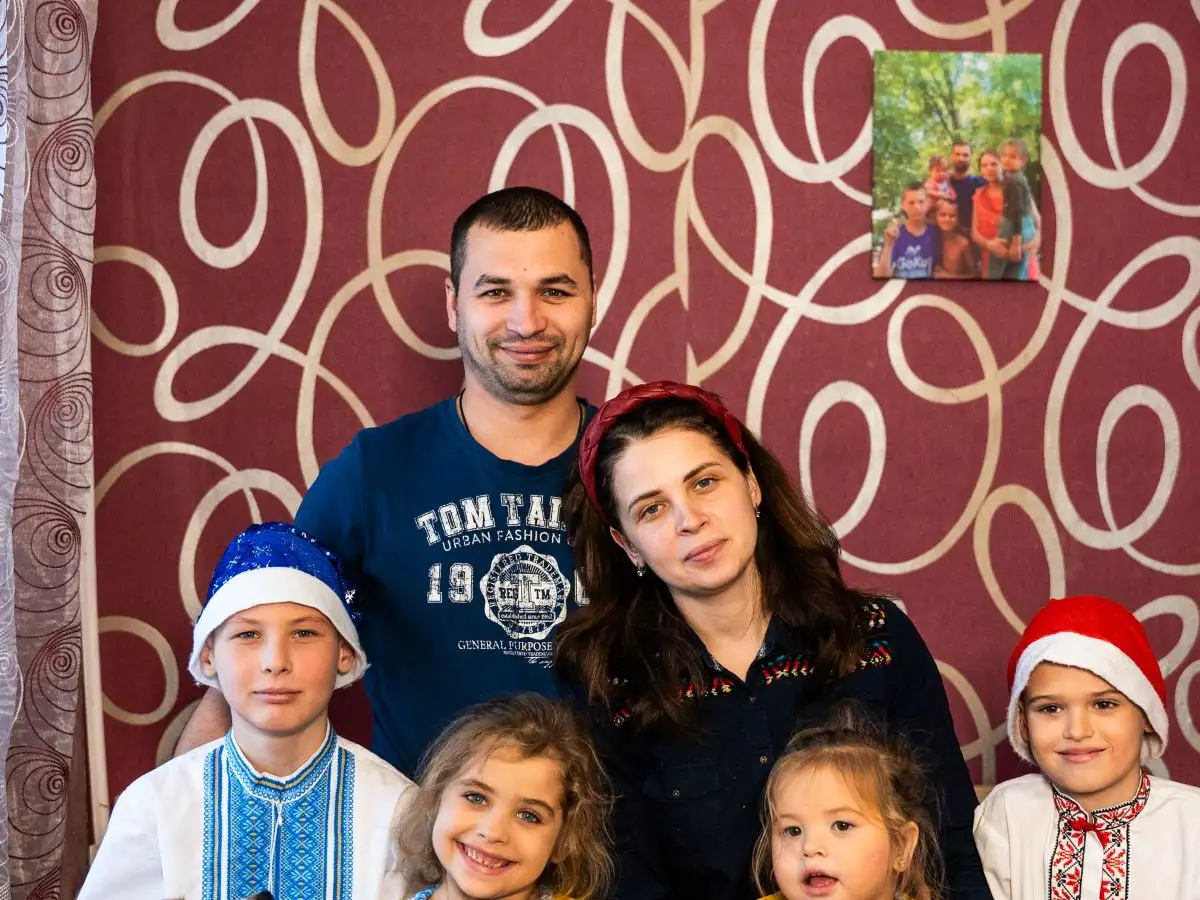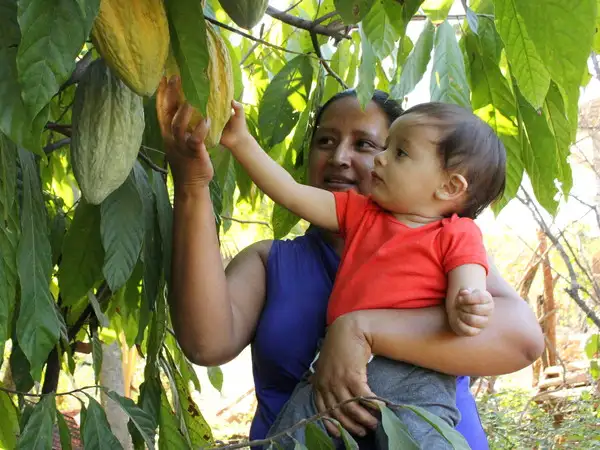Donate to the Refugee and Conflict Fund
Your donations will help reach vulnerable people fleeing war, poverty and natural disasters.


Maria and her family had to flee the fighting in Ukraine
Ukraine is Europe's second-largest country. It is a land of wide, fertile agricultural plains, with large pockets of heavy industry in the east.
In 1991, Ukraine gained independence after the collapse of the Soviet Union. It has since veered between seeking closer integration with western Europe and being drawn into the orbit of Russia, which sees its interests as threatened by a western-leaning Ukraine.
While Ukraine and Russia share common historical origins (a significant minority of the population uses Russian as its first language), the west of the country has closer ties with its European neighbours, particularly Poland.
An uprising against pro-Russian president Viktor Yanukovych in 2014 ushered in a series of western-leaning governments. But Russia used the opportunity to seize the Crimean Peninsula and arm insurgent groups to occupy parts of the east, eventually launching a full-scale invasion of Ukraine in 2022.
Conflict in Ukraine escalated on 24 February 2022 when the Russian military, who were stationed for months on the Ukrainian border, entered the country. The conflict is causing civilian casualties and significant damage to infrastructure.
A better world needs all of us. That’s why we’ve been working together with partners in Ukraine, as well as organisations in neighbouring countries, to help families who have been forced to flee their homes, livelihoods and loved ones.
In 2024 we reached 83,281 people in Ukraine.
Our Ukrainian partners on the ground – all affected by the conflict themselves - provided 17,038 people with emergency food packages and hot meals, and provided cash to another 3,840 people to purchase emergency supplies themselves.
We supported 14,496 Ukrainians with fuel, winter clothing and bedding during the harsh winter, and housed 2,194 people who had lost their homes in emergency accommodation. We repaired 79 families’ houses which had been damaged by shelling.
Our trained psychologists worked with 4,776 children and adults in group and individual mental health and psychosocial support counselling sessions.
Russia’s aggression in Ukraine is forcing families to leave their homes. Most of the people leaving are women, children and elderly people, as men between the ages of 18 and 60 are asked to stay and fight.
More than 7 million refugees from Ukraine are either in neighbouring countries (such as Slovakia, Hungary, Moldova, Poland and Romania) or have travelled further to other countries.
The safe evacuation of civilians from areas where the Russian army is present is made possible through humanitarian corridors, which are often temporary and subject to change because of Russian shelling and the presence of mines along the roads. These deadly dangers have limited the movement of civilians, hindering access to basic goods and services. Shelling has also led to water and electricity cuts in residential areas.
Hostilities and insecurity have also displaced 7 million people within Ukraine itself. At least 13 million people are estimated to be stranded in areas most affected by active fighting, particularly in the south and south-east regions, as some people have chosen to stay or have been unable to flee.
The number of people in need of humanitarian assistance increased from 2.9 million before 24 February to 17.7 million after, with numbers expected to continue increasing because of continuing hostilities. Conflict has affected about 32 million people.
Together, we can build a better world. In Ukraine, more than 12 million people, or one in every three Ukrainians, are now in need of humanitarian aid.
As communities continue to be displaced by the active fighting in eastern and southern Ukraine, we are providing emergency food packages and running social kitchens to support families and individuals who have lost their homes and livelihoods. We are providing cash payments to the most vulnerable households so that they can purchase supplies to meet their own basic needs.
With over 2 million houses damaged by the war, we are providing vouchers to Ukrainians living in homes with leaking roofs and broken windows so that they can purchase materials for repairs. As temperatures in winter drop to -20C, we are distributing sunflower briquettes and firewood for fuel alongside winter clothing and bedding to those who remain near the frontlines, primarily older people and people with disabilities.
We are offering basic medical consultations and treatment to individuals with injuries and health problems. We then provide cash and vouchers so that those with limited income or on low pension or disability payments can pay for more complex treatment and medications.
In 2024 there was one psychologist for every 100,000 people in Ukraine, despite 88% of households having at least one family member with mental health needs. We are working with displaced and conflict-affected Ukrainians to process their trauma, build resilience amid the ongoing war, and adjust to life in new cities through one-on-one counselling and group therapy sessions. We are also reaching some of the most remote, frontline areas in eastern Ukraine with mobile teams of psychologists who drive out to deliver sessions in local villages.
Your donations will help reach vulnerable people fleeing war, poverty and natural disasters.
Pray for peace in Ukraine and throughout the world.
Find resources to guide church collections for the Ukraine Humanitarian Appeal.

CAFOD is the official aid agency for the Catholic Church in England and Wales.
With your help, we reach out to people living in hard-to-reach places, in war zones and those who are discriminated against.